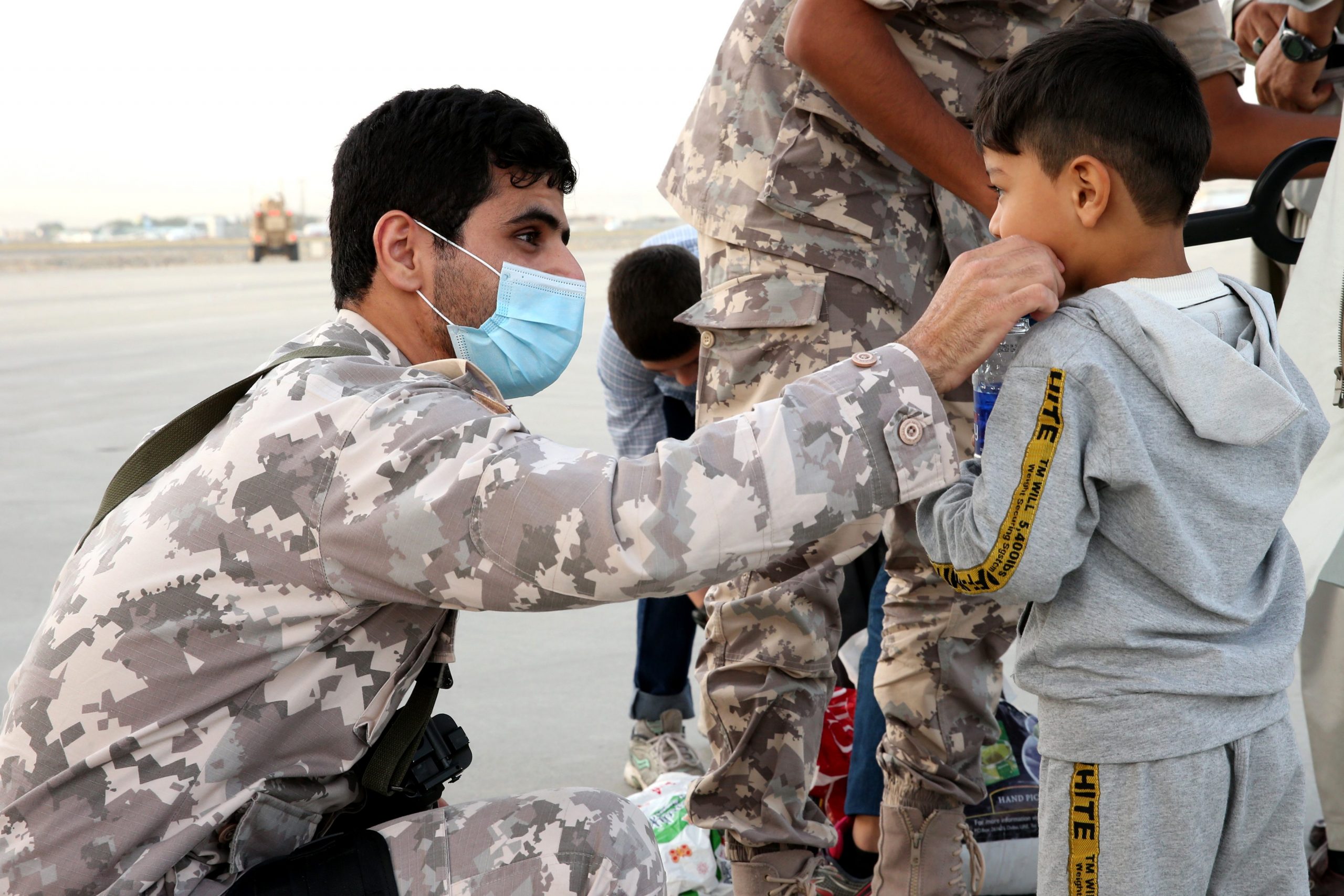Qatar evacuated at least 80,000 people from Afghanistan.
Qatar defended its role in Afghanistan on Friday in response to a Wall Street Journal (WSJ) op-ed accusing the Gulf state of enabling the Taliban takeover of Kabul by moving its members to the Gulf state.
Titled “What Qatar Owes Afghanistan’s Refugees”, written by Jonathan Schanzer and Bill Roggio of the Foundation for Defense of Democracies, the op-ed accused Qatar of playing “a key role in facilitating the Taliban’s conquest of Afghanistan last year.”
They claimed Qatar was the country that supported the move of the Taliban members in 2010 to Doha, saying its acceptance of the then-militant group “was hardly a shock” while describing it as “a haven for members of many extremists groups”.
In another WSJ piece to respond to the allegations, Qatar’s Media attaché in Washington Ali Al-Ansari dismissed Schnauzer’s claims as “misleading”.
“The Taliban’s political office was established at the request of the US government, and in coordination with the former Afghan government, with the aim of fostering dialogue toward peace,” read the Qatari reponse.
He added that Qatar’s role in Afghanistan has always centered on de-escalation, with it hosting talks between the Taliban and the US in 2020. The talks ended with the signing of the Doha Agreement, which set the deadline for the foreign troop withdrawal from Afghanistan.
“Qatar played an essential role in helping end the longest war in American history, providing evacuations and supporting human rights,” said Al-Ansari.
It also hosted negotiations between the Taliban and the former Afghan government until the last minute. Qatari and Afghan officials said talks would have continued if former Afghan President Ashraf Ghani did not flee Kabul at the time of the Taliban takeover.
“All Qatar’s work is done in coordination with the US government across multiple administrations, and we have repeatedly condemned all violence against civilians in Afghanistan and all infringements of their civil rights,” added Al-Ansari.
Qatar agreed to move the US embassy and other western consulates in Kabul to Doha in order to ensure they continue their diplomatic operations.
It has also continued to facilitate dialogue between the international community and the US as it believes isolating Afghanistan will not help resolve its worsening humanitarian situation.
“Qatar’s engagement with the Taliban has one goal: to improve the lives of the Afghan people. If we feel engagement is no longer benefiting the Afghan people, Qatar will withdraw from its intermediary role,” Qatar wrote to the WSJ.
Al-Ansari stressed that disengagement with the Taliban would mean abandoning the crises-hit country, contributing to its poverty and despair and the rise of extremism.
Afghan evacuees
The first WSJ op-ed accused Qatar of not doing enough to assist evacuees, despite the Gulf state holding history’s largest airlift of people last year.
Almost immediately, Qatar launched evacuation operations, providing Afghans and foreigners a safe transit in sanitary housing units, initially built for the 2022 FIFA World Cup.
“Around 80,000 people have been evacuated from Afghanistan through Qatar, among them Afghan civilians, women’s groups and international journalists, including many reporters from this [WSJ] newspaper,” said Al-Ansari.
The Qatari official noted that other evacuees, including the all-girls robotics team the Afghan Dreamers, remained in Qatar for studies.
The Gulf state is also set to welcome students for the American University of Afghanistan, which will open its campus in Doha to ensure the continuation of education.
The US-led evacuation process last year saw thousands of evacuees placed in the Al Udeid Air Base. At the time, there were concerns over America’s capacity at the base, to which Qatar responded by building tents and distributing at least 50,000 meals per day.
“We had to respond to the challenge. The Red Crescent has established a field hospital there, in addition to our Ministry of Health that dedicated one of the hospitals for the cases that need to be hospitalised. So we’re trying our best to cope with that,” Qatar’s Assistant Foreign Minister Lolwah Al Khater told Doha News last year.
Even after evacuations, Qatar worked on ensuring the resumption of operations at Afghanistan’s airports while continuing to provide much-needed assistance to the country.







